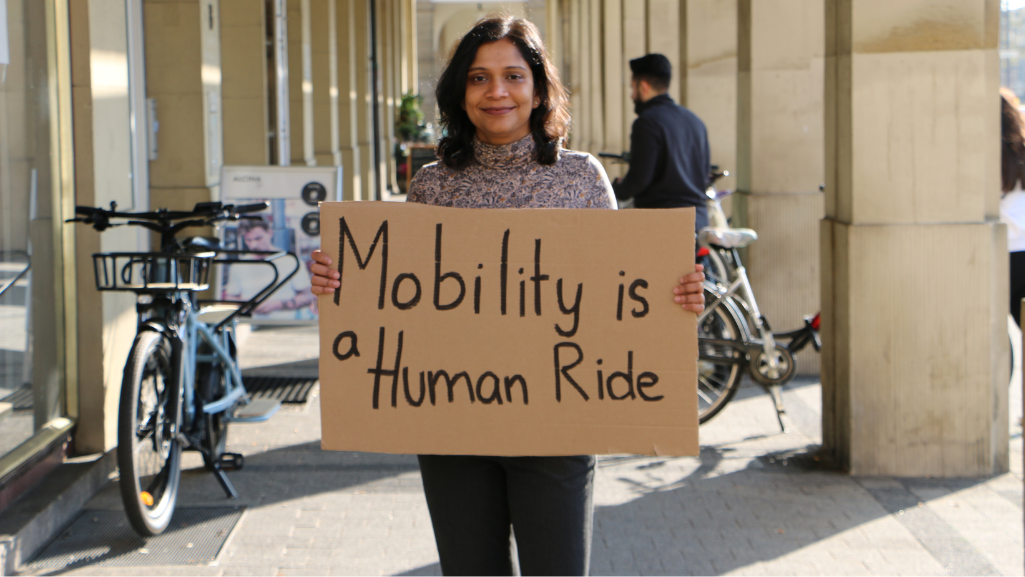While many people take their ability to move around freely for granted, millions around the globe who are denied this fundamental right. Mobility isn’t just a convenience; it’s a prerequisite for social participation. Those without access to transportation face exclusion from society, with limited opportunities and possibilities. In this article, we’ll explore how access to mobility is a human right that affects education, employment, healthcare, and social inclusion.
Access to education

Approximately 250 million children worldwide do not attend school, and the journey to school is a significant barrier. Over one billion people live more than 2 km from an all-weather road, forcing many children to walk for hours to get to school. In many places, the journey to school is not only long, but also dangerous – especially for girls A case in Morocco highlights the transformative power of improved roads, where girls’ enrollment in elementary school increased from 17% to 54% after road access improved.
Access to jobs
Inclusive and diverse mobility options enhance access to employment. However, getting to the job is often not so easy – not only in rural areas but also in cities. Urbanization has outpaced public transportation infrastructure growth, leaving nearly half of city residents with inadequate access to public transit. In poorer neighborhoods, this problem is exacerbated, leading to social exclusion. Projects like the Lima metro and La Paz cable car in Bolivia, connecting marginalized areas with city centers, offer effective solutions. Furthermore, ensuring public transportation is affordable and safe, particularly for women, is vital, as one in six women worldwide does not look for a job for fear of harassment on public transport.
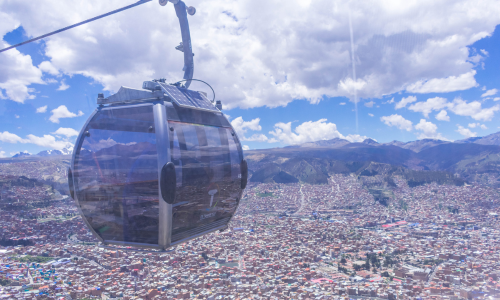
Access to medical care
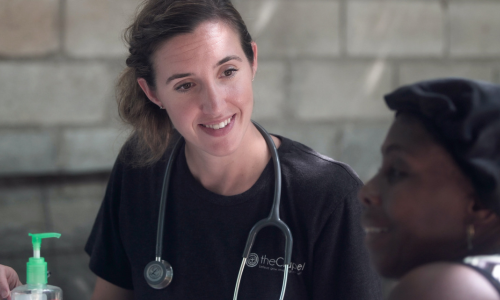
One billion people lack adequate and affordable healthcare globally, with many unable to reach the nearest doctor due to high transportation costs. For instance, a Sudanese study revealed that 50% of parents cited transportation costs as a barrier to seeking medical care for their children. In Pakistan, access to roads doubled the likelihood of women attending prenatal consultations, demonstrating the critical role mobility plays in healthcare access.
Access to society
Mobility extends beyond education, jobs, and healthcare; it encompasses access to social life, leisure, culture, and interactions with others. Even in wealthy industrialized nations, equitable mobility remains a challenge, affecting older individuals, children, youth, disabled persons, those living in poverty, and migrants. In the United States, nearly 100 million people (16%) cannot drive due to financial constraints, lack of a driver’s license, age, or disability. Additionally, 45% of Americans lack access to public transportation. Today, a large proportion of urban transportation systems around the world remain inaccessible to persons with disabilities.
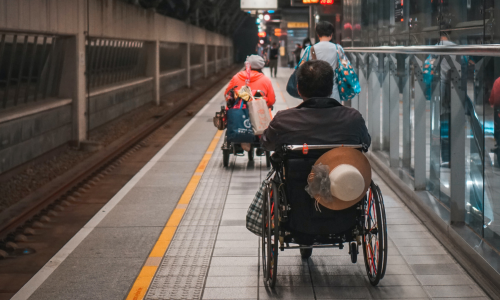
#MobilityisaHumanRide Campaign
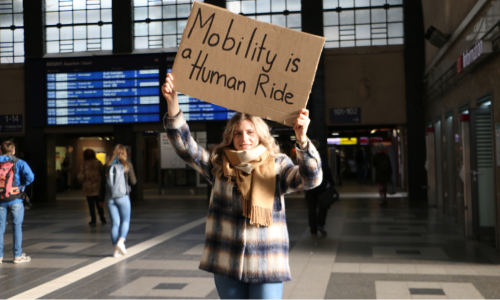
To highlight the importance of inclusive and sustainable mobility, we have launched the #MobilityisaHumanRide campaign. Join us by sharing a photo of yourself holding a cardboard sign with the slogan “Mobility is a Human Ride” along with a personal statement on why mobility matters. By using the hashtag #MobilityisaHumanRide and tagging @PTVGroup, you’ll not only be raising awareness but also contributing to a good cause. PTV will donate 1€ for each post to support a mobility project by the World Resources Institute. Because every person has a fundamental right to mobility.
Access to mobility is a human right that underpins education, employment, healthcare, and social inclusion. As we strive for a more equitable and inclusive world, let us remember that mobility is not a privilege but a basic human right that must be available, affordable, accessible, and safe for all. Join the #MobilityisaHumanRide campaign and help us make mobility a universal human right.
